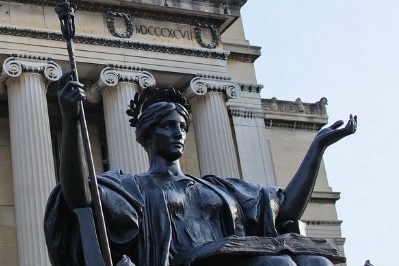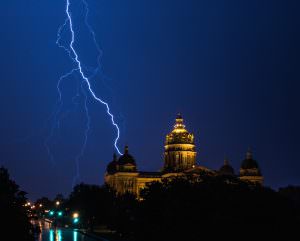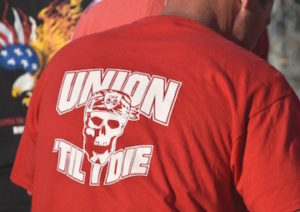In a Major Ruling, Grad Students Win the Right to Unionize at Private Universities
The National Labor Relations Board announced that a previous ruling—that graduate workers were not entitled to collective bargaining because they are students—was flawed. The National Labor Relations Board ruling involved a case at Columbia University in New York. (InSapphoWeTrust / flickr / cc)
The National Labor Relations Board ruling involved a case at Columbia University in New York. (InSapphoWeTrust / flickr / cc)
By Deirde Fulton / Common Dreams
The National Labor Relations Board ruling involved a case at Columbia University in New York. (InSapphoWeTrust / flickr / cc)
The National Labor Relations Board (NLRB) said Tuesday that graduate students who work as teaching and research assistants at private colleges are employees—a ruling with “big implications” for both higher education and organized labor in the United States.
Inside Higher Ed explains:
The NLRB said that a previous ruling by the board—that these workers were not entitled to collective bargaining because they are students—was flawed. The NLRB ruling, 3 to 1, came in a case involving a bid by the United Auto Workers to organize graduate students at Columbia University. The decision reverses a 2004 decision—which has been the governing one until today—about a similar union drive at Brown University.
Paul R. Katz, one of the Columbia graduate students involved in the organizing efforts, told the New York Times: “We are elated that the NLRB has overturned Brown and restored our collective bargaining rights.”
This is a huge milestone for graduate workers across the country! pic.twitter.com/RLVpuCNcLY
— GWC-UAW (@GWCUAW) August 23, 2016
Stanford University, the Massachusetts Institute of Technology, and “the entire Ivy League” had jointly submitted a brief, the Washington Post reports, “arguing that involving students in the bargaining process would disrupt operations, if they want to negotiate the length of a class, amount or grading or what’s included in curriculum. Bringing more people to the table, they said, could lead to lengthy and expensive bargaining to the detriment of all students.”
But the NLRB, in its ruling (pdf), sided with the students, in a decision that “could potentially deliver tens of thousands of members to the nation’s struggling labor movement,” according to the Wall Street Journal.
However, Bloomberg‘s Josh Eidelson noted on Twitter:
Today’s legal ruling from NLRB doesn’t stop private schools from running aggressive union-busting campaigns to prevent collective bargaining
— Josh Eidelson (@josheidelson) August 23, 2016
Still, he said:
But today’s ruling means that like (most) other private employees, grad students have right on paper to force boss to bargain via election
— Josh Eidelson (@josheidelson) August 23, 2016
And being considered employees under NLRA means grad students have protection (again, at least on paper) from being punished for organizing
— Josh Eidelson (@josheidelson) August 23, 2016
Politico reports:
Columbia may still appeal the board’s decision in federal court. In a statement, the university said it is reviewing the ruling and disagrees with the decision “because we believe the academic relationship students have with faculty members and departments as part of their studies is not the same as between employer and employee.”
Deirdre Fulton is a staff writer at Common Dreams.
Your support matters…Independent journalism is under threat and overshadowed by heavily funded mainstream media.
You can help level the playing field. Become a member.
Your tax-deductible contribution keeps us digging beneath the headlines to give you thought-provoking, investigative reporting and analysis that unearths what's really happening- without compromise.
Give today to support our courageous, independent journalists.






You need to be a supporter to comment.
There are currently no responses to this article.
Be the first to respond.